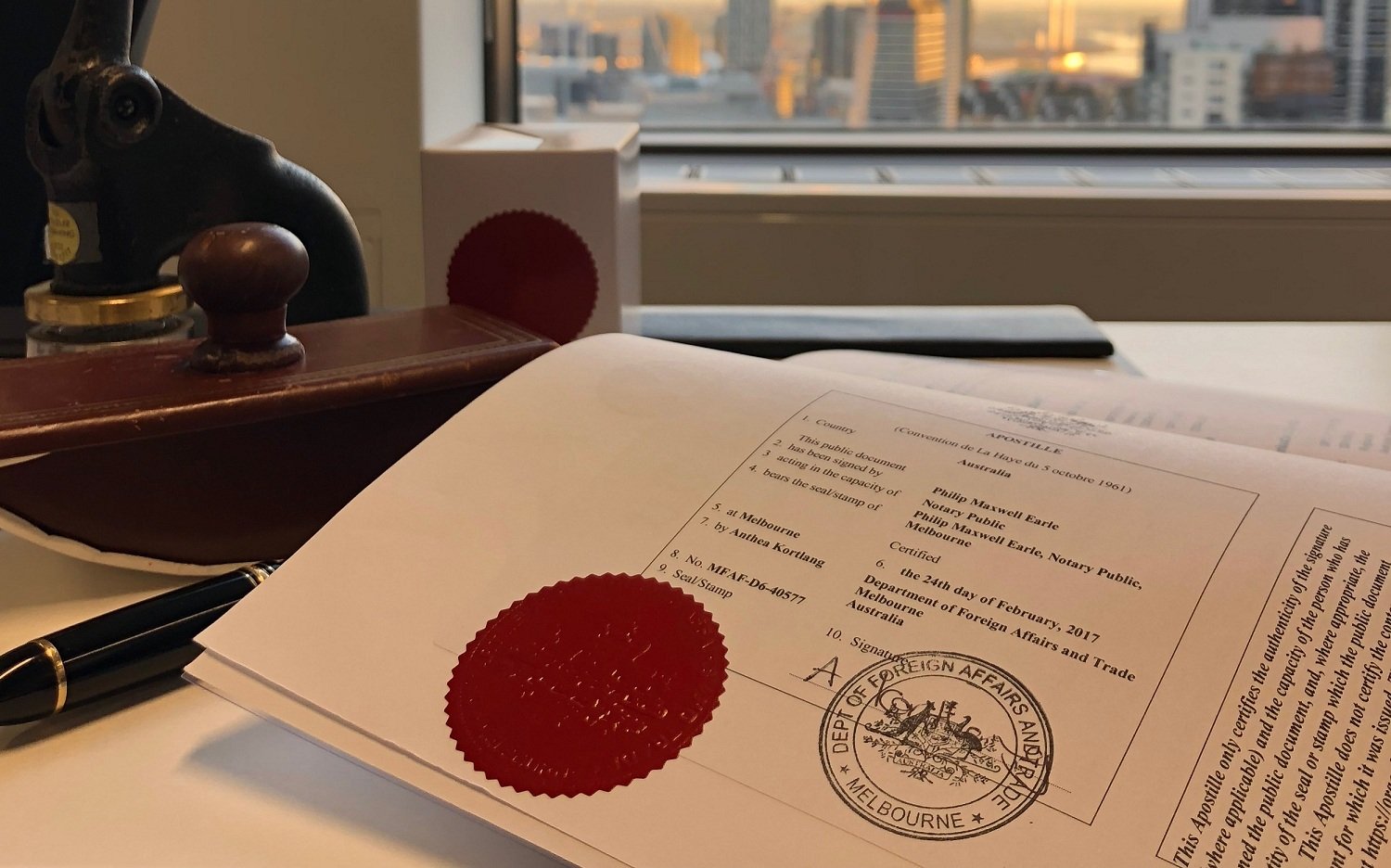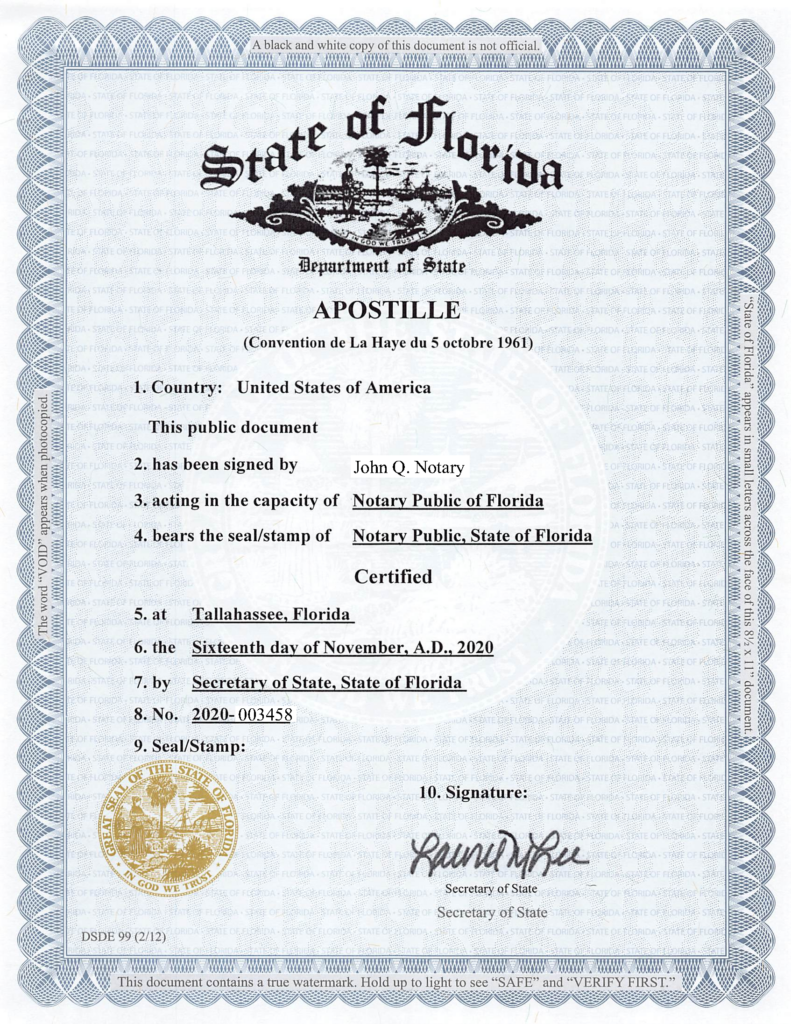Diving Into the Factors Behind the Obligatory Requirement of Apostille Certification for Legal Papers
In the realm of lawful documents, the mandatory need of apostille qualification has actually come to be a crucial facet that dramatically affects the credibility and recognition of legal documents on a global scale. Understanding the rationale behind this need entails delving into the detailed internet of legal complexities, historic precedents, and global arrangements that underscore the relevance of apostille qualification in today's interconnected world. By exploring the underlying factors behind this prevalent demand, a clearer image emerges of why this seemingly governmental process holds such tremendous relevance for federal governments, organizations, and people alike.
Historical Development of Apostille Accreditation
Exactly how did the idea of apostille certification develop in time to end up being a vital part of international record validation? The historic evolution of apostille qualification dates back to the very early 20th century. The need for a streamlined approach of verifying records for use throughout boundaries emerged as international trade and traveling increased. In action to this demand, the Hague Conference on Personal International Regulation introduced the Apostille Convention in 1961. This worldwide treaty developed a structured process for accrediting the credibility of documents to be acknowledged in participant nations.
Originally taken on by a couple of European countries, the Apostille Convention gradually gained global acceptance due to its effectiveness and efficiency in confirming the legitimacy of official papers. Throughout the years, the convention's reach broadened as more countries joined, recognizing the apostille as a generally accepted type of file authentication. Today, apostille certification has become a basic requirement for validating lawful documents in worldwide deals, guaranteeing smooth communication and lawful proceedings between countries.
Simplifying International Document Legalization
The streamlining of global document legalization treatments has actually significantly improved performance in cross-border transactions. Simplifying the procedure of legislating documents for international use has actually come to be essential in assisting in swift and smooth transactions between countries. One of the crucial systems that have actually added to this simplification is the adoption of the Apostille Convention, which provides a standard method for confirming the credibility of records throughout taking part nations.
By sticking to the Apostille requirements, countries accept acknowledge each various other's public records as legitimate without the demand for more legalization. This eliminates the lengthy and typically troublesome procedure of several verifications by various authorities, saving time and resources for individuals and companies participated in international tasks.

Ensuring Document Credibility and Credibility
To make certain the authenticity and legitimacy of legal files in international deals, stringent confirmation processes are vital. By needing apostille qualification for lawful documents, authorities intend to validate the beginning of records and validate the trademarks of individuals entailed.
Furthermore, validating the authenticity of legal papers via apostille certification improves trust fund and confidence among celebrations involving in international transactions. It offers guarantee that the records presented are genuine and lawfully binding, consequently lowering the risks related to fraudulent activities. Furthermore, guaranteeing document validity with apostille certification streamlines the legalisation procedure, making it extra efficient and reputable for companies and people performing organization throughout boundaries. Inevitably, by promoting rigorous confirmation requirements, apostille accreditation contributes to a much more secure and transparent international lawful structure.

Assisting In Cross-Border Legal Recognition
In the realm of international purchases, the apostille qualification not just guarantees the authenticity and validity of lawful papers but also plays a crucial function in helping with cross-border legal acknowledgment (Houston Apostille). When legal papers birth an apostille certificate, they are readily approved by foreign authorities without the need for more verification. This structured procedure expedites the acknowledgment of papers in different nations, promoting performance and minimizing bureaucratic hurdles in legal issues that transcend national limits
Helping with cross-border legal recognition through apostille qualification promotes trust and self-confidence in the authenticity of records exchanged in between countries. This acknowledgment is particularly critical in situations such as global company purchases, adoption procedures, or legal procedures entailing celebrations from various jurisdictions. By adhering to the criteria set forth by the Apostille Convention, countries agree to honor the apostille seals fastened to documents from other participant countries, therefore streamlining the procedure of legal recognition throughout boundaries. Ultimately, the apostille qualification works as a fundamental device in advertising smooth international legal participation and ensuring the smooth operation of cross-border deals.
Compliance With International Treaty Specifications
Conformity with worldwide treaty standards is essential for ensuring the consistent application of legal policies throughout getting involved nations. The Apostille Convention, established in 1961, lays out the demands for the acceptance of public records amongst member nations.
The Apostille accreditation, as mandated by the treaty, serves as navigate to this website a warranty of authenticity for documents such as birth certifications, marriage licenses, court judgments, and notarized acts. This standardized approach aids avoid fraud and makes sure that lawful documents stemming from one participant nation are go now conveniently accepted in another. Additionally, by abiding by international treaty criteria, nations show their commitment to promoting the principles of openness, count on, and participation in legal issues on a global range.
Verdict

In the realm of lawful documents, the obligatory demand of apostille accreditation has actually come to be an important element that dramatically impacts the validity and recognition of legal papers on a worldwide range. Today, apostille qualification has actually come to be a standard requirement for validating legal papers in international deals, making sure smooth interaction and legal procedures between nations.
Additionally, confirming the authenticity of legal files with apostille accreditation enhances count on and confidence among parties involving in global purchases.In the world of worldwide deals, the apostille accreditation not only ensures the authenticity and legitimacy of lawful papers however likewise plays a critical function in facilitating cross-border lawful acknowledgment. By adhering to the standards established forth by the Apostille Convention, countries agree to honor the apostille seals fastened to records from various other member nations, therefore simplifying the process of lawful recognition across boundaries.
Comments on “Apostille Providers in Houston: Streamline Your Record Legalization”